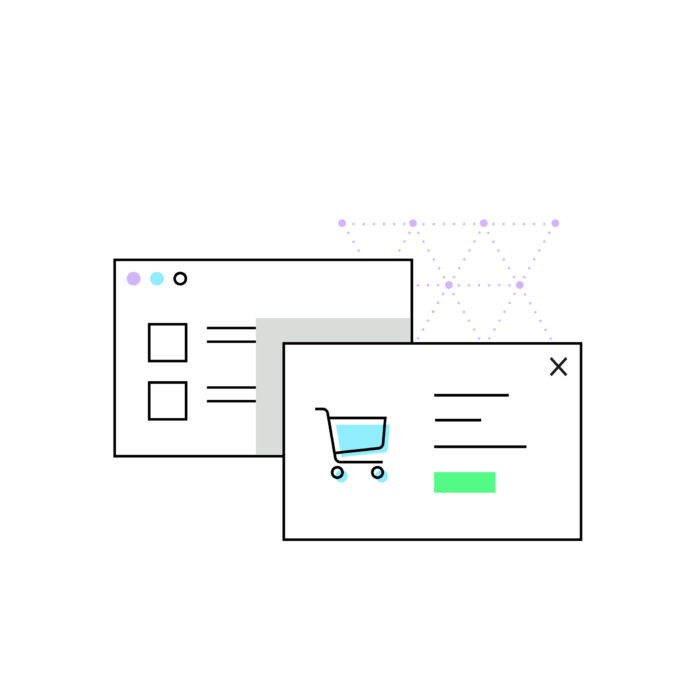What online sellers need to know about income tax
by February 8, 2025
One question we get quite often here at TaxJar is “I know I have sales tax nexus in a state. Does that mean I’m also required to pay income tax in that state?”
This blog post will give you an overview on income tax, and when you do (and don’t) need to worry about it.
This blog post was written with the help of information provided by the sales tax experts at Peisner Johsnon. Any mistakes are the author’s own. We always recommend contacting a tax professional for advice specific to your business.
Income tax 101
First of all, not all “income tax” is created equal. Much like sales tax, the rules and regulations of income tax vary from state to state.
Unlike sales tax, income tax is on the proceeds from your business. Also, not all states call “income tax” the same thing. For example, in Texas and California the tax on income that your business pays is called “franchise tax,” though in each state the term “franchise tax” means something different. Yikes.
Other states have what is called a “gross receipts tax.” Gross receipts tax is on your gross receipts, not your profits. Because of this, it can feel a little unfair. For example, your business grosses $1mm this year, but pay $1.1mm in expenses. With a gross receipts tax, you’d still be liable for paying tax on that $1mm, even though your business wasn’t even profitable. Ouch!
When are online sellers required to collect sales tax?
If you’re reading this blog, chances are you already know about sales tax nexus. That’s when your business has a connect to a state that requires you to collect sales tax from buyers in that state. Well, there’s also such an animal as “income tax nexus.”
While each state has it’s own nexus rules, the states are constrained by a federal law called Public Law 86-272 or “The Interstate Income Act of 1959.” In essence, this law says that businesses are not required to pay income tax as long as orders are filled or shipped outside the state. But inversely, that means if orders are filled or shipped inside a state, then states can require that businesses pay income tax.
To boil it down, if all your business does is sell tangible personal property (i.e. property perceptible to the senses), and the orders are fulfilled from a point outside of the state, then the state is forbidden from charging you a net income tax. However, if you provide services like installation, training, etc. inside a state, then you are likely liable for income tax.
Let’s look further at what this means for e-commerce sellers.
How does income tax apply to online sellers?
Say you are an online seller who sells products only from your home in Iowa. You don’t have any other business activity in any other state, though since you sell online, people from all over the US may buy your items. Even though people nationwide buy from you, you are only required to pay income tax to Iowa because all of your orders are fulfilled in and shipped from Iowa.
On the other hand, say you sell on Amazon FBA or otherwise have locations in multiple states. For this argument, we’ll say you live in Iowa, but have inventory in fulfillment centers in California and Florida. In this case, your items are fulfilled from Iowa, California and Florida, so technically would be required to file an income tax return and pay income tax in those three states. However, there’s more to it than that.
How “materiality” affects income tax
This is where the concept of materiality comes into play. Just as with materiality in sales tax, you’ll want to look at your materiality when it comes to income tax. And by materiality, I mean you want to look and see if your income tax liability in a state is significant enough for you to worry about paying income tax.
Here’s a simplified example:
A seller makes $100k in sales in State X and is trying to decide whether or not to comply with income tax. This state requires you to pay income tax on your profit. You have a 10% profit margin in your business (which is pretty standard for product sellers), so in this case your profit would be $10,000. Now let’s say the state’s income tax rate is 8%. Eight percent of your $10,000 in profits is $800. It’s up to you to decide whether you consider $800 material enough to raise your hand and decide to pay income tax in a state where your business is not based.
For example, say your profit margin is just 5%. You may actually wipe out your profits by paying income tax. Ouch!
If you do decide not to pay income tax to that state, you may be on the hook later to pay $800 in taxes, plus any interest in penalties. It’s up to you to decide if your company can bear that risk.
(Keep in mind that many factors, credits, etc. may go into your tax rate, so regard the above as an extremely simplified example. You should always work with a tax professional if you have questions about your business’s taxes.)
How does income tax nexus compare to sales tax nexus?
Let’s take a seller in the same situation. The seller makes $100k in sales in State X, and is trying to decide whether to be sales tax compliant. Assuming the average sales tax rate in the state is 8%, if the seller collects sales tax on all of his sales he’d collect $8,000. But if he doesn’t collect that $8,000 and gets caught, he would be liable to pay that $8,000 plus penalties and interest out of his pocket.
As you can see, the liabilities that come with income tax nexus and sales tax nexus vary greatly, and that’s why you should consider each type of tax separately when deciding how to comply.
A couple of other things to consider:
- Sales tax compliance is fairly cheap and DIY (especially with an automation service like TaxJar); Income tax can cost $300 (at the low end) for a return
- Income tax comes out of your pocket – it’s a tax on your proceeds; Sales tax is a pass through tax meaning that you collect it from your customer and send it to the state. The only time you pay sales tax out of pocket is when you didn’t collect it from the customer at the point of sale
- According to sales tax expert Mike Fleming from Peisner Johnson, you are more likely to get audited for sales tax than you are for income tax
When should online sellers consider paying income tax
In many cases, when you sell online you may technically have income tax nexus in a state where your inventory is stored, such as in an Amazon fulfillment center or in another 3rd party fulfillment facility. However, you may choose not owe any income tax, or choose not to comply if you are a small seller. Though, there are several states where sellers who fulfill items out of state may want to consider being income tax compliant, too. The states are:
Washington
Washington is one of those states that has a “gross receipts tax,” meaning that you owe tax based on your total gross receipts rather than just your profits. This is called the “Washington Business & Occupation” (B&O) tax is about half a percentage of your gross receipts. (Ex: If you gross $100,000 in Washington then you’d owe $500 in B&O tax.)
For Amazon FBA Sellers: Amazon recently announced that, due to Washington’s new Marketplace Facilitator Law, they will begin collecting sales tax on behalf of 3rd party sellers. Unfortunately, this does not apply to Washingtons’ B&O tax. If you sell on Amazon FBA, while you will no longer be required to collect and file sales tax via Amazon starting January 1, 2018, you’ll still need to pay and remit B&O tax.
If you need help with Washington income tax, contact an income tax expert.
Texas
Texas has the “Texas franchise tax.” This is a modified gross receipts tax.
The Texas franchise tax is due from all incorporated sellers who fulfill orders from Texas on May 15th every year. (By incorporated, in this case I mean that sole-proprietors are not subject to this tax, but LLCs, partnerships, S-Corps, etc. are.) Fortunately, many online sellers will not be required to pay this tax, though you may be required to file a return without paying. This is because there are four deductions that sellers can take:
- The “million dollar” deduction – This deduction applies to most smaller sellers. As of 2017, if you gross less than $1,100,000 for franchise tax reports originally due on or after January 1, 2016 and before January 1, 2018, then you are not required to pay any money. Though you are still required to file a return by May 15th each year.
- The Cost of Goods Sold (COGS) deduction – First, while this is called the “cost of goods sold” deduction, it isn’t the COGS that we usually think of as online sellers. (Because tax is confusing, Texas has made up their own definition of COGS.) In this case, COGS is your “cost of acquisition” of your products (i.e. how much you paid to buy your inventory, plus some other factors laid out in Texas’s tax code). If you are not qualified for the million dollar deduction, you can take this deduction. To do so, in extremely simplified terms, take your gross sales into Texas, multiply that number by .375%. If that amount is $999 or less, then no tax is due. But if the amount is $1,000 or higher, then tax is due. You can read what “COGS” Texas allows you to include in your COGS deduction in the Texas code of laws.
- The Flat 30% deduction – This uncommon deduction is for very high volume sellers. They can opt to just pay tax on 30% of their gross profit margin.
- The Compensation deduction – This extremely uncommon deduction is taken when you have highly compensated people in your company.
If you are liable for Texas franchise tax, I recommend speaking with a vetted accountant who throughly understands this tax.
Kentucky
In Kentucky, corporations are sometimes liable for Kentucky Limited Liability Entity Tax (LLET.) This tax is based on the assets you use in the state of Kentucky. Unless you are based in Kentucky, generally the only assets you’d have there are inventory. The minimum LLET tax is $175, and most businesses only end up owing and paying this amount.This tax is due whenever your business entity’s corporate taxes are due (March 15th, April 15th, etc.) Also, some corporations are subject to a separate income tax in Kentucky.
Sales tax expert Michael Fleming of Peisner Johnson advises sellers to take this annual $175 LLET payment into account when deciding when to register for a Kentucky sales tax permit.
If you need help with Kentucky LLET tax and income tax, contact an income tax expert.
Two other states – South Carolina and Illinois – will open an income tax account for you when you register for a sales tax permit. This, according to the state, is only so that you will have this account should you need it. Of course, if you have any questions about these open and unused accounts, it’s a good idea to speak with an income tax expert.
Not to sound like a broken record, but if you want tax advice for your business, it’s always a good idea to seek advice from a tax expert who can help you with your business’s specific tax scenario.
Are you ready to automate sales tax? To learn more about TaxJar and get started, visit TaxJar.com/how-it-works.







